



If you’re dreaming of a place where the ocean breeze carries the scent of salt and tropical flowers,Phú Quốc is that kind of magic. This island district feels like a gentle escape from the everyday,where time slows down just enough for you to soak in the vibrant colors of turquoise waters meeting white sandy beaches. Walking along the shore,you’ll hear the rhythmic lapping of waves mingling with the distant chatter of fishermen and the occasional call of seabirds. It’s a place that invites you to breathe deeply and just be present. Phú Quốc’s charm isn’t just in its natural beauty—it’s in the warmth of its people and the rich culture that pulses through its markets and villages. The night markets are alive with sizzling sounds and fragrant aromas of freshly grilled seafood,sweet tropical fruits,and the unmistakable tang of fish sauce,a local staple. You can taste the island’s soul in every bite,from the peppercorns grown on its hillsides to the fresh catch of the day served with a side of friendly smiles. What really sets Phú Quốc apart is its laid-back spirit combined with a sense of discovery. Whether you’re snorkeling among vibrant coral reefs,wandering through pepper farms,or simply watching the sunset paint the sky in shades of pink and gold,there’s a feeling of connection—to nature,to culture,and to a simpler way of life. It’s the kind of place that stays with you long after you’ve left,whispering invitations to return.
The information on this page is currently being reviewed by Tripkliq and should be used as a guide only
Eng word: Hello
Eng pronunciation: Sin chow
Local language: Xin chào
Eng word: Goodbye
Eng pronunciation: Tahm byeet
Local language: Tạm biệt
Eng word: Thank you
Eng pronunciation: Gahm uhn
Local language: Cảm ơn
Eng word: How much
Eng pronunciation: Bow nyew
Local language: Bao nhiêu
Eng word: Toilet
Eng pronunciation: Nyah vay sin
Local language: Nhà vệ sinh
Eng word: Help me
Eng pronunciation: Zoop toy
Local language: Giúp tôi
Eng word: Yes
Eng pronunciation: Vuhng
Local language: Vâng
Eng word: No
Eng pronunciation: Khom
Local language: Không
Eng word: Excuse me
Eng pronunciation: Sin loy
Local language: Xin lỗi
Phú Quốc has been inhabited since the 17th century, with early settlers primarily being fishermen and farmers who took advantage of the island's rich natural resources.
During the Nguyen Dynasty, Phú Quốc was an important strategic location. The island was used as a base for naval operations and trade routes.
In the late 19th century, Phú Quốc came under French colonial rule. The French established rubber and coconut plantations, which significantly influenced the island's economy.
Built by the French in the 1940s and later used by the South Vietnamese government, Phú Quốc Prison is a historical site where many political prisoners were held. Today, it serves as a museum.
Phú Quốc is famous for its pearl farming industry, which began in the early 20th century. The island's pearls are renowned for their quality and are a major attraction for tourists.
Phú Quốc is known for its high-quality fish sauce, a staple in Vietnamese cuisine. The tradition of fish sauce production dates back over 200 years and continues to be a significant part of the island's culture.
In 2001, Phú Quốc National Park was established, covering more than half of the island. The park is home to diverse flora and fauna, making it a popular destination for nature lovers.
In 2006, Phú Quốc was designated a UNESCO Biosphere Reserve, recognizing its rich biodiversity and efforts in conservation. This status has helped boost eco-tourism on the island.
Over the past two decades, Phú Quốc has transformed into a major tourist destination, with significant investments in infrastructure, resorts, and recreational facilities, attracting visitors from around the world.
In Huyện Phú Quốc, the most common Power Adaptor is Type A, Type C, Type G.






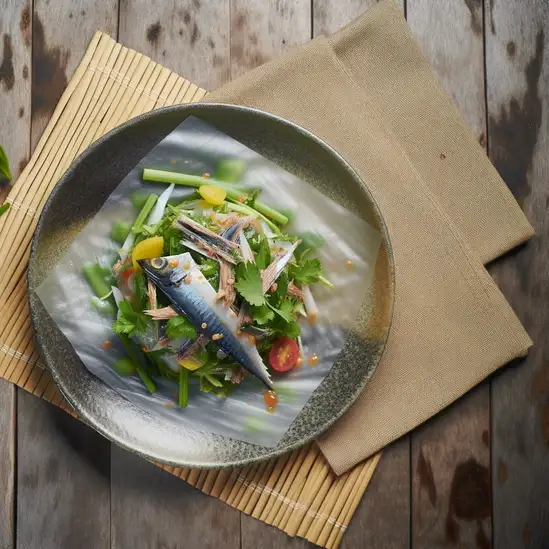
A fresh mackerel salad that combines raw fish with herbs, vegetables, and a tangy dressing, typically served with rice paper.
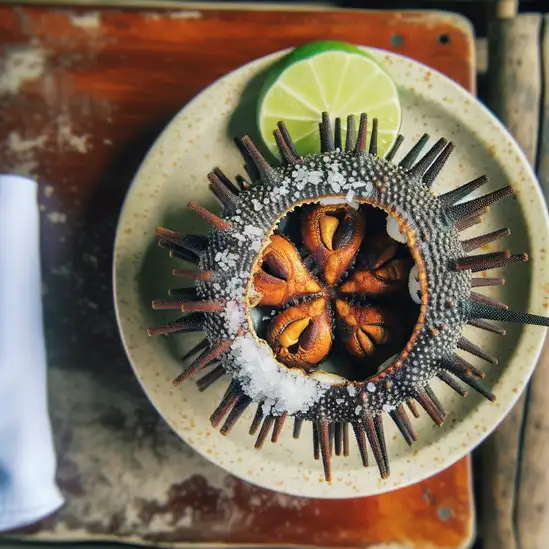
Grilled sea urchin, often served with a sprinkle of salt and lime, showcasing the fresh seafood of Phú Quốc.
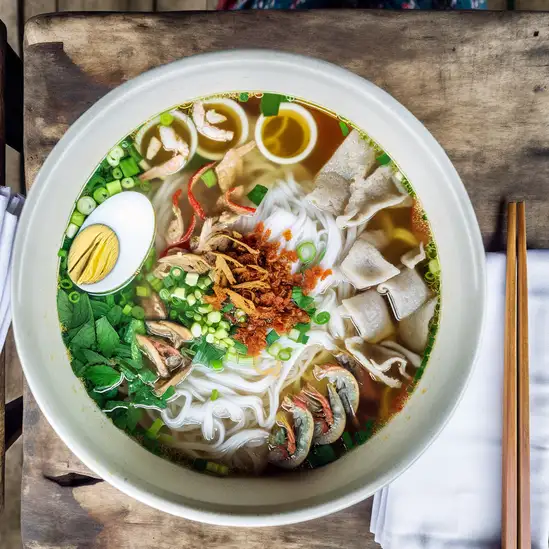
A unique noodle dish where diners mix their own ingredients, including fresh seafood and herbs, into a bowl of broth.
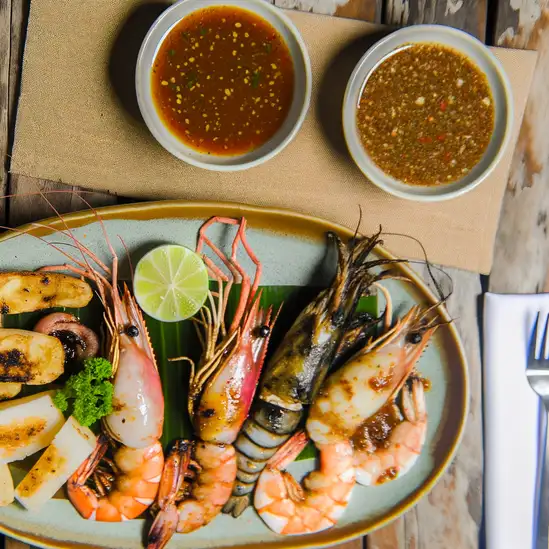
Grilled seafood, including shrimp, squid, and fish, often marinated with local spices and served with dipping sauces.
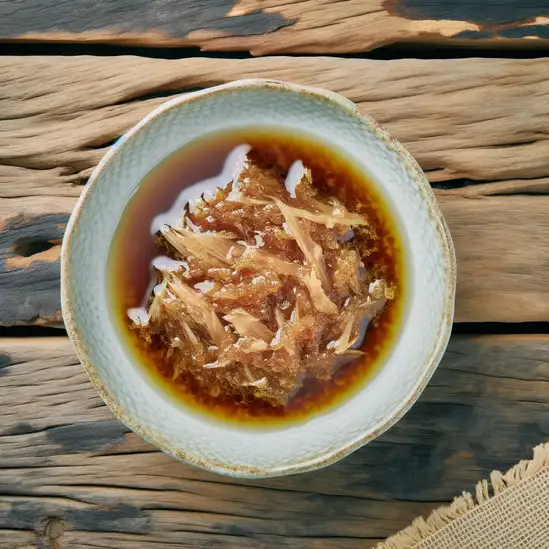
A traditional fish sauce made from fermented fish, often used as a dipping sauce or seasoning in various local dishes.

A thick noodle soup made with crab, featuring a rich and flavorful broth, often garnished with fresh herbs and lime.

Braised fish in a clay pot, typically made with local fish and cooked with caramelized sugar, fish sauce, and spices.
If you ever find yourself craving a place where the ocean breeze carries the scent of salt and tropical flowers,Nha Trang is where you want to be. This coastal city hums with a laid-back energy that feels both vibrant and soothing at the same time. Imagine waking up to the gentle crash of waves against the shore,the sky painted in soft pastels as fishing boats bob lazily in the harbor. The streets buzz with scooters weaving through markets where fresh seafood sizzles on grills and the aroma of lemongrass and chili fills the air.
Nha Trang’s charm lies in its seamless blend of natural beauty and local life. Beyond the stunning beaches,you’ll find colorful pagodas perched on hills,their bells chiming softly in the breeze. The city pulses with a warm friendliness—locals greet you with genuine smiles,eager to share stories or recommend their favorite street food stalls. Speaking of food,don’t miss the chance to savor a bowl of bún chả cá,a flavorful fish cake noodle soup that tastes like the sea itself,or sip on fresh sugarcane juice while watching the sunset paint the sky in fiery hues.
What really makes Nha Trang stick with you is its rhythm—the way the sun warms your skin during the day,the lively chatter of night markets,and the peaceful moments watching fishing boats return under a blanket of stars. It’s a place where you can feel the pulse of Vietnam’s coastal life,rich with culture and simple pleasures,inviting you to slow down and soak it all in.
Imagine stepping into a place where the ocean breeze carries the scent of salt and sizzling street food,and the rhythm of life feels both relaxed and vibrant—that’s Da Nang. This city pulses with an easygoing energy,where modern skyscrapers stand alongside ancient temples,and the laughter of locals blends with the gentle crash of waves. Walking along the Han River at dusk,you’ll catch the golden glow of the Dragon Bridge lighting up the night,its fiery breath a spectacle that feels almost magical.
Da Nang’s streets are alive with the aroma of fresh seafood grilling on open flames,mingling with the sweet fragrance of tropical fruits from bustling markets. The city’s character shines through its people—warm,welcoming,and proud of their rich heritage. You can hear the chatter of vendors,the clinking of glasses in cozy cafes,and the distant hum of motorbikes weaving through traffic,all creating a soundtrack that’s uniquely Da Nang.
What really sets this city apart is its blend of natural beauty and cultural depth. Just a short ride away,you can explore the Marble Mountains,where limestone caves and pagodas invite quiet reflection,or relax on My Khe Beach,feeling the soft sand between your toes. And when night falls,the city transforms with lively night markets and riverside bars,where you can savor local dishes like mi quang or fresh spring rolls,each bite bursting with flavor and history. Da Nang isn’t just a place to visit—it’s a place to feel alive.
Home to the world-famous Ha Long Bay,a UNESCO World Heritage Site with thousands of limestone islands and islets,perfect for cruises and exploring hidden caves.
ExploreA charming ancient city with a rich cultural heritage,located near the Cu Lao Cham Islands,which are ideal for snorkeling,diving,and eco-tourism.
ExploreA remote island city known for its untouched beaches,coral reefs,and historical significance,offering a tranquil escape for nature and history enthusiasts.
ExploreA coastal city popular for its beaches,seafood,and proximity to Con Dao Islands,making it a convenient stop for island exploration and relaxation.
ExploreTourists may be charged exorbitant fees for using beach chairs or umbrellas, even in public areas.
Some currency exchange shops may use unfair rates or shortchange tourists during transactions.
Scammers may pose as charity workers asking for donations, but the money does not go to a legitimate cause.
Shops may sell counterfeit or low-quality products as authentic items, especially pearls and souvenirs.
Tourists may be sold overpriced or fake tours that do not deliver the promised experience.
Tourists renting jet skis may be falsely accused of causing damage and forced to pay high repair fees.
Tourists may be accused of damaging rented motorbikes, with rental shops demanding excessive repair fees.
Crowded areas like night markets or beaches may attract pickpockets targeting tourists' valuables.
Some restaurants may inflate prices for seafood dishes or add hidden charges to the bill.
Some taxi drivers may take longer routes or use rigged meters to overcharge tourists.
Vietnam has very strict laws regarding drugs. The possession, use, or trafficking of illegal drugs is severely punished, with penalties ranging from heavy fines to long prison sentences, and even the death penalty for serious offenses. Tourists should avoid any involvement with illegal drugs to avoid severe legal consequences.
In Huyện Phú Quốc, as in the rest of Vietnam, smoking is generally allowed in public places, but there are restrictions. Smoking is prohibited in indoor public areas such as restaurants, bars, and public transportation. There are designated smoking areas in some public places. Tourists should look for signs indicating where smoking is allowed and be mindful of local regulations to avoid fines.
Vaping is not as widely regulated as smoking in Vietnam, including Huyện Phú Quốc. However, it is advisable to follow the same rules as smoking, avoiding indoor public spaces and respecting designated non-smoking areas. Vaping in non-designated areas may attract attention and potential fines, so tourists should exercise caution.
What are other people saying about Huyện Phú Quốc?
Recent Social posts about Huyện Phú Quốc
There is nothing to show you for now.